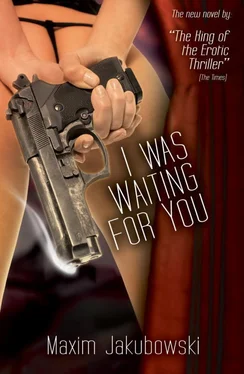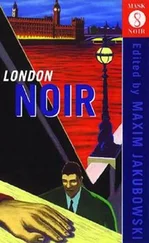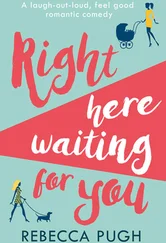“Tell me, Jack, I’m all ears.”
“I’m in Paris and need some information…”
“Mate, I haven’t been there for ages, twenty years I think, know nothing about the place. You know me, it’s a week of Sundays if I ever even cross the river here…”
“I realise that, Timbers, knew that already. What I need is some contact here who could maybe give me some assistance. Someone like you, see, but with local knowledge of things. Does that make sense?”
On the other end of the line, the gawky South Londoner chuckled.
“Ah, a French Timbster…”
“Exactly,” Jack said. “Or should I say exactement ?”
“For a moment there, I thought you wanted me to come over, had me worried, just not my scene… hmmm… tell me… legal or illegal sort of stuff?”
“Just information, really,” Jack answered. “Lay of the land, suggestions and all that.”
There was a brief silence.
“Can probably do, man.”
“That would be just great…”
“I’ll need a few hours. A couple of calls, check the guy is still around, see if he’s willing to see you. Vouch for you.”
“I understand,” Jack nodded.
“I’ll ring you back. This number?” Timbers asked.
“Yes.”
“It’s a deal mate. The moment I know, I’ll be on the blower.”
“Great, really great.”
“I suppose a guy like you speaks French? Not sure how much my guy can communicate in English.”
“I do,” Jack confirmed. “Enough to make myself understood.”
“So,” Timbers queried, “your next story is going to be set in Paris?”
“No,” Jack said. “Nothing to do with a book.”
“Personal?” Timbers said.
“You could call it that, I suppose.”
The call from London didn’t come until the following day. Jack was given just a name and a number. Timbers had spoken to the man and vouched for Jack. “You owe me one,” he’d said. “I know.” “Good luck then; hope it works out for you.”
It took him another couple of days to contact the guy in question. His number just kept ringing and took no messages. In the meantime, Jack kept on wrestling with his memories of Giulia in search of possible clues, evoking too many bittersweet memories of their past encounters and embraces. How they had met, the first night, the first touch, the kiss, the scent of her skin. He rang her father twice, in need of further information to clarify matters. He was back in Rome. Every time he spoke to the surgeon, he felt like a total fraud, but the snippets he garnered didn’t help him make any progress. He knew why Giulia had come to Paris in the first place, but little of what she had done here for the past three months or so of her stay, outside of perfunctory university lectures and prudent evenings out with the friend with whom she had been staying until she had out of the blue moved out on some flimsy pretext. The friend, Flora, whom he’d questioned on the telephone, as she was initially reluctant to meet, had no explanations to offer; she was as puzzled as they all were.
Timbers’ French connection asked to meet up with him in a bar off the Place Pigalle. In another life, he would have been fascinated to find out everything there was to know about the man, a stocky guy from Marseille with a lived-in face and piercing grey eyes, in his mid-fifties, who listened impassively to Jack’s questions like a minor character in a Jean-Pierre Melville film, indifferent but attentive and secreting menace by the bucket load. But a small, sad voice inside him told Jack all of this was unlikely to ever make it into a book.
“That’s not much to go on,” he finally commented, taking a slow slip from his glass of pastis, and giving the photographs of Giulia Jack had brought along a somewhat perfunctory glance.
“I know,” Jack said apologetically.
“Women go missing all the time in Paris,” the man from Marseille said.
“She’s bright,” Jack added. “I don’t think she would have gotten involved in anything dangerous. Really. Let’s not be over-dramatic here,” he concluded. This was not a book and a damsel in distress to be rescued from the heartless clutch of traffickers in white flesh. Surely those days were over.
His interlocutor made no further comment.
“The family are happy to pay a reward, I would add,” Jack said.
“Money’s not the problem,” the Marseillais said. “At any rate at this stage. I’m happy to do this as favour to our mutual friend in London. We go back a long time.”
“That’s generous of you.”
“I’ll ask around,” he concluded.
They exchanged telephone numbers. Jack desperately wanted to ask the man how long his enquiries would take, but refrained from doing so. He had done a deal with the owner of his small hotel to stay for another week, at a slightly reduced rate. He had to be patient.
Later that day, he arranged to meet up with Flora, who had in all likelihood been the last known person to have seen Giulia before her disappearing act.
The young woman wore her hair cropped and short and preferred to just sit on the Boulevard bench than join him for a coffee. She was visibly nervous. She’d already told Giulia’s father everything she knew, she said. She gave Jack a weary glance. As if she could see right through him. Had Giulia told her about him, their now defunct relationship, or was she just guessing?
“She just told me she had to… get away,” Flora said.
“Was she running away from something, from somebody?” Jack asked, terrible visions of other men, tall, dark, swarthy pursuing Giulia.
“No,” the young French woman replied. “That was in the past. She told me after she arrived that she’d come to Paris to forget the past, begin a new life, adventures maybe. She felt life owed her that…”
“Was she happy?”
“I think so. Those first weeks, we laughed a lot, went out dancing, she met a lot of my friends, she was cheerful.”
“Do you think she might have met someone?” Jack enquired.
“Maybe, Flora said. “But if she did, she never mentioned it to me. Giulia enjoyed going out during the day, while I was at classes. Just walking about, you know. She always said she was something of an urban gypsy. She was also very secretive, kept to herself,” she added.
“Oh, I know…” he said. Didn’t he know it!
“She just told me she wanted to move out, that it was nothing personal, but she wished to be on her own, wanted to think and all that. But she was lying, I’m sure of that…”
“And she just packed all her stuff?”
“Yes. The last I saw of her was through the window — I was watching– as she began her walk towards the Métro station down the street, pulling her case behind her and that big rucksack of hers strapped across her shoulders.”
“And she never phoned you again or got in touch?”
“No. I assumed she’d gone back to Italy soon after, so it was a surprise when her father came here to question me and my parents.”
A thought occurred to Jack.
“Did she bring her computer with her when she came to stay in Paris with you?”
“Yes, she had a small Apple white PowerBook. But she couldn’t use it much at our apartment. We haven’t got a broadband connection, just a dial-up connected to the telephone. My parents are a touch old-fashioned. Giulia would sometimes go out to cafés or places where they had a free connection when she wanted to check or send mails.”
Flora stole another furtive glance at him as he sat there deep in thought, adding every word, every snippet to his mental search engine. There was nothing to take notes about, he knew. He’d have no problem remembering all this. What little there was. Jack looked up, and his eyes intersected with hers. Her fingers were playing with a stray strand of wool defying the tidy alignment of her knitted scarf’s thread. She avoided his gaze. As if she had been about to ask him something. “Who are you really?” “Are you the older man Giulia knew?” But whatever thoughts she was formulating did not translate into words.
Читать дальше











